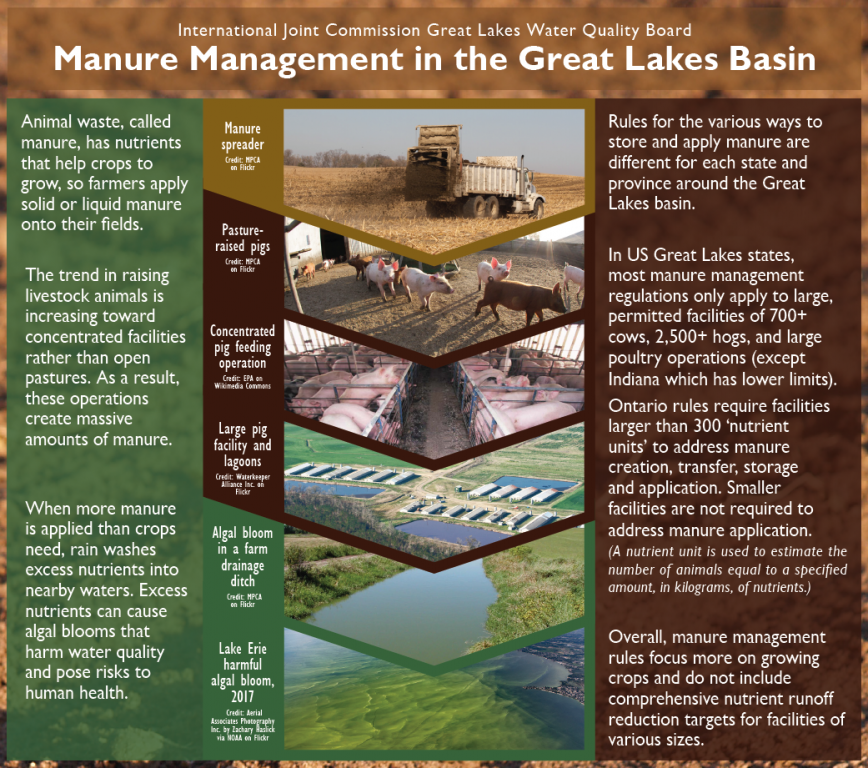Great Lakes Need Coordinated, Strengthened Animal Waste Rules According to IJC WQB Report
In its new report, the International Joint Commission’s Great Lakes Water Quality Board (WQB) examines the increasing trend that large, concentrated livestock feeding facilities are a source of Great Lakes pollution.
In its new report, the International Joint Commission’s Great Lakes Water Quality Board (WQB) examines the increasing trend that large, concentrated livestock feeding facilities are a source of Great Lakes pollution. Where there are more animals there is more animal waste, or manure. While manure has nutrients that help crops grow, applying excessive amounts of manure to fields and at the wrong times can cause nutrients from manure to pollute waters and cause or worsen algal blooms. The report, Oversight of Animal Feeding Operations for Manure Management in the Great Lakes Basin, outlines actions to better manage the manure from large-scale livestock operations to protect the Great Lakes.
“In many places, there are stronger rules for storing and applying commercial fertilizer than there are for manure fertilizer, though both can cause algal blooms,” said WQB Canadian Co-Chair and retired Conservation Authorities Chief Administrative Officer Gayle Wood. “Because the number of concentrated animal feeding operations is growing, we need governments to strengthen and coordinate the rules. If we want to keep algae blooms under control, then we need to make sure manure from these facilities remains under control.”
According to the report, manure management rules are different for each Great Lakes state and province, and oversight lacks rigor. The WQB recommends that Great Lakes states and provinces coordinate to consistently regulate storing and applying manure to land.
“Everyone wins when there is one set of rules to follow,” said WQB US Co-Chair and University of Michigan School for Environment and Sustainability Senior Advisor Jon Allan. “A unified framework for managing manure can make it easier for farmers and industry to comply, and stronger rules will protect the drinking water source for millions of people in Canada and the United States.” Recognizing that regulation alone will not ensure success, the WQB also recommends funding to support agriculture so that it can quickly adopt these new rules.
The WQB also recommends governments around the Great Lakes address information gaps and loopholes that make it easy to undercount the number of animals at a concentrated feeding facility.
The report is also accompanied by a one-page infographic summarizing the report’s recommendations.
NOTE: This press release was submitted to Urban Milwaukee and was not written by an Urban Milwaukee writer. While it is believed to be reliable, Urban Milwaukee does not guarantee its accuracy or completeness.



















